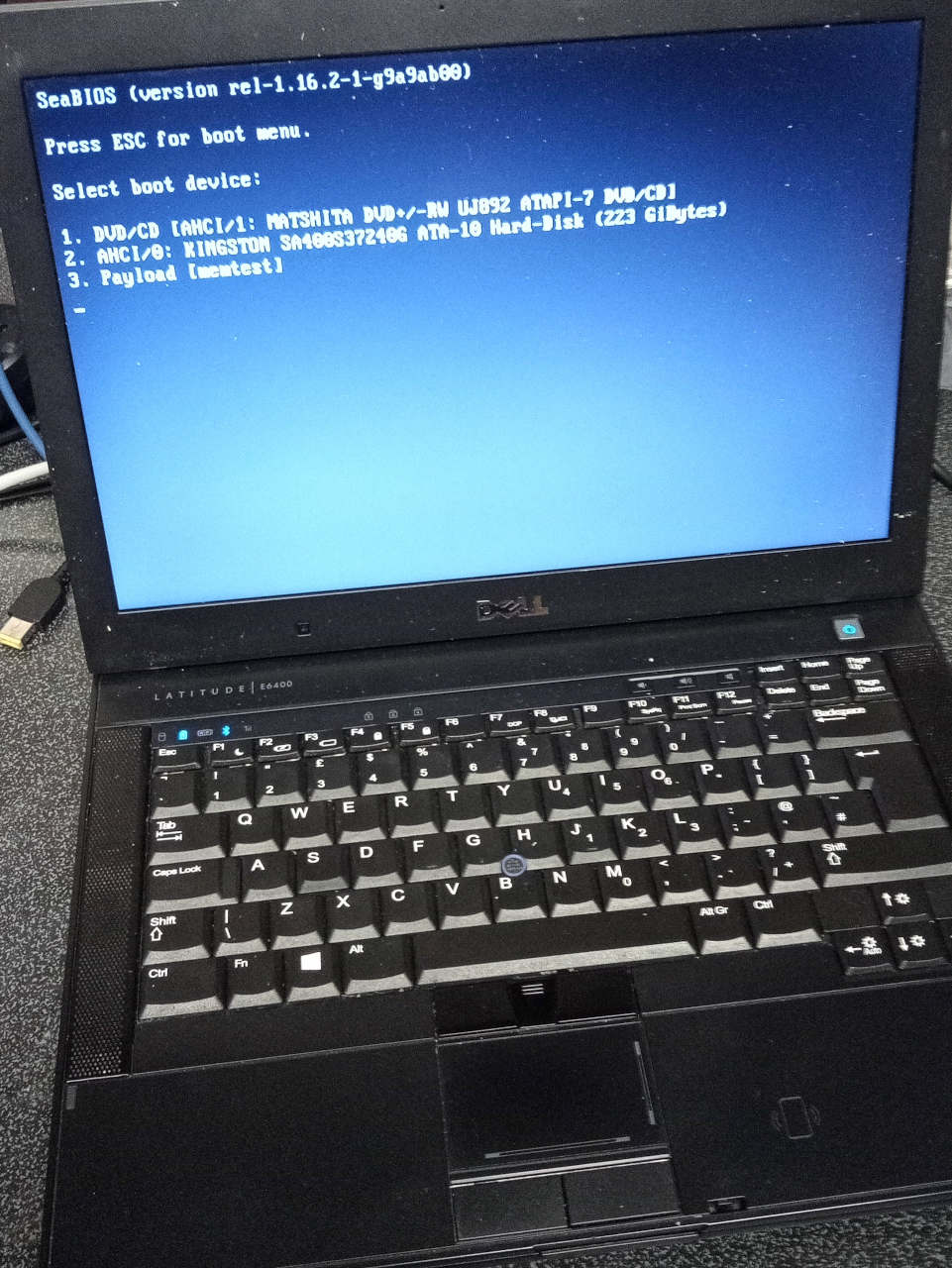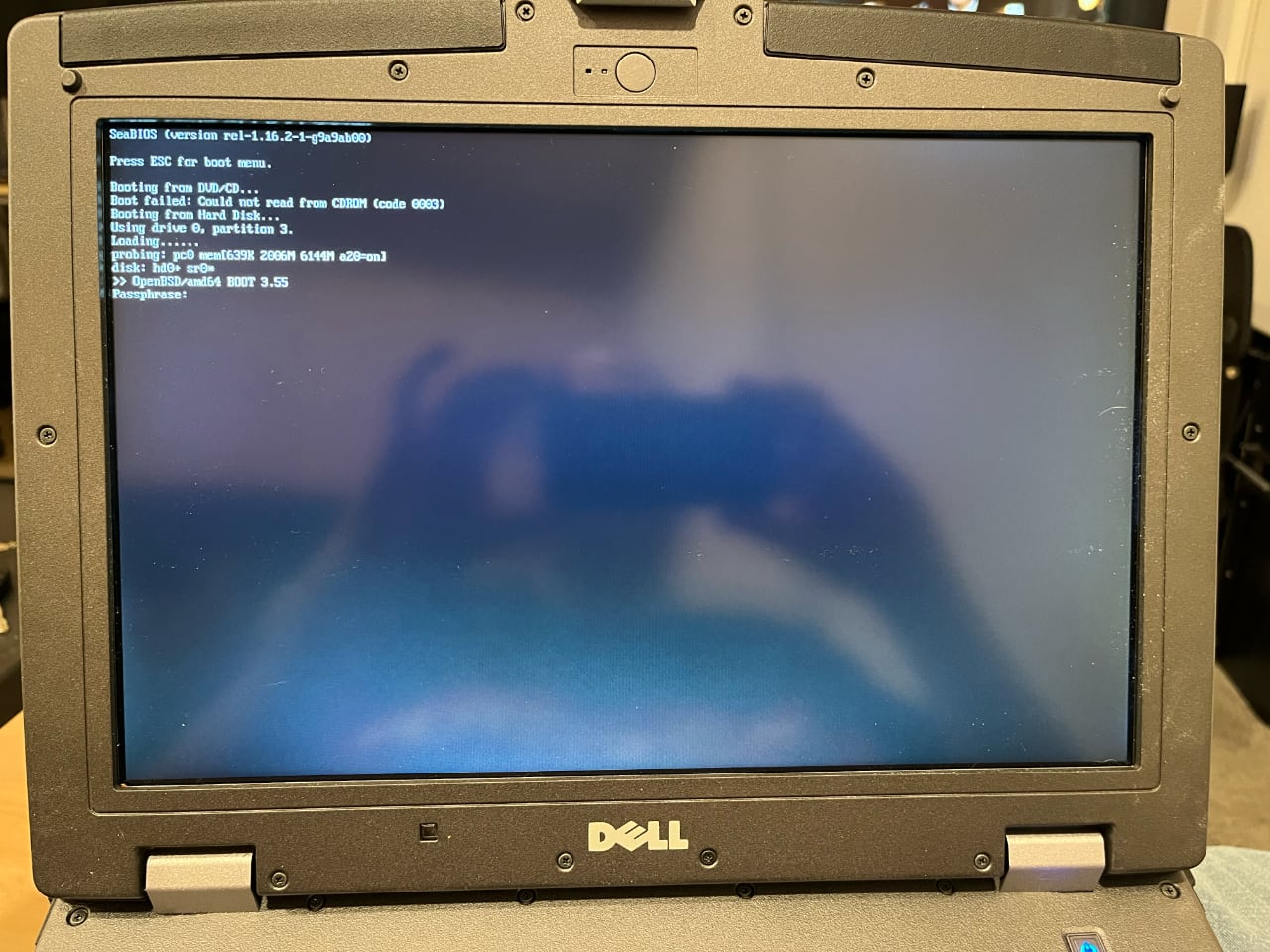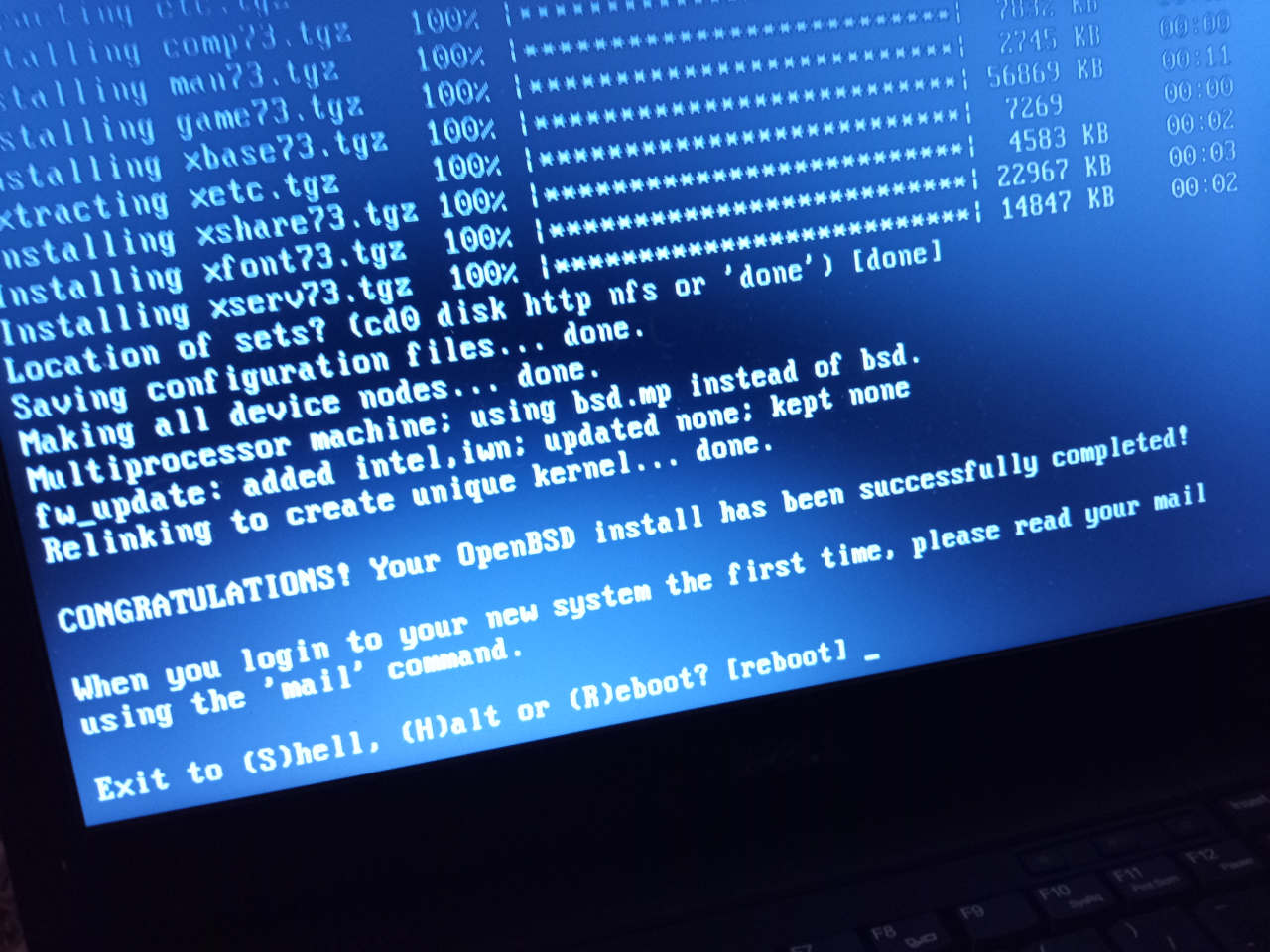Introduction
============
Known supported variants: E6400, E6400 XFR and E6400 ATG. This page has
been updated to include information about Nvidia GPU variants. See news post:
[Dell Latitude E6400 XFR support confirmed, plus experimental Nvidia GPU
support on E6400 variants](../../news/e6400nvidia.md).
**To install Libreboot, see: [E6400 installation
instructions](../install/e6400.md)**
ROM images for Dell Latitude E6400 are available for flashing in the Libreboot
release 20230423 onwards, or you can compile a ROM image for installation via
lbmk, see: [build instructions](../build/)
There are two possible flash chip sizes for the E6400: 4MiB (32Mbit) or 2+4MiB
(16Mbit+32MBit). Libreboot presently supports the 4MiB version, and provides
8MiB images for those who upgrade their flash to 8MiB or 16MiB. There appears
to be several possible mainboard PCBs for the E6400, which we believe mostly
affects the GPU configuration and the number of available SPI flash footprints:
- LA-3801P: iGPU, possibly dual SPI (however only one may be populated)
- LA-3803P: dGPU, dual SPI (however only one may be populated)
- LA-3805P: iGPU, single SPI flash (4MiB)
- LA-3806P: dGPU, unknown SPI configuration (likely at least 4MiB)
These PCB numbers can be found either under the black plastic in the RAM slots
on the bottom (CPU side) of the board, the top left corner near the VGA port
(top side, under the keyboard and palmrest), or near the CPU backplate (only
requires removal of the keyboard).
We believe that all boards will have at least a single 4MiB flash chip,
regardless of the number of SPI footprints. This is likely the most common
configuration on most available systems. The 2+4MiB configuration likely
would have only been used on systems with full Intel ME firmware with AMT
functionality, though this configuration has not yet been encountered.
Most people will want to use the 4MiB images.
Intel GPU: Blob-free setup (no-ME possible)
---------------
This is a GM45/PM45 platform, so completely libre initialisation in
coreboot is possible, provided by default in Libreboot.
Management Engine (ME) firmware removed
-------------------------
This port in Libreboot makes use of `ich9gen` from ich9utils, which
you can read about in the [ich9utils manual](../install/ich9utils.md) - this
creates a no-ME setup. The Intel Management Engine firmware (ME) is completely
removed, and the ME disabled, just like on ThinkPad X200, T400 and so on.
*The E6400 laptops may come with the ME (and sometimes AMT in addition) before
flashing libreboot. Dell also sold configurations with the ME completely
disabled, identifiable by a yellow sticker reading "3 ME Disabled" inside the
bottom panel. This config sets the MeDisable bit in the IFD and sets the ME
region almost entirely to 1's, with the occasional 32-bit value (likely not
executable). libreboot disables and removes it by using a modified descriptor:
see [../install/ich9utils.md](../install/ich9utils.md)*
(contains notes, plus instructions)
Issues pertaining to Nvidia GPU variants
========================================
Nouveau(in Linux) currently broken
----------------------------------
Nouveau is the libre driver in Linux, for Nvidia graphics. Nvidia themselves
do not provide binary drivers anymore, for these GPUs.
If you're booting an Nvidia variant in Linux, boot Linux with
the `nomodeset` kernel option at boot time. This means that graphics are
rendered in software.
More information about Nvidia E6400 models is written in
the [regular E6400 hardware page](../docs/hardware/e6400.md). The reason it's
in a WIP branch is because, on this day, more testing is needed; the Linux
nouveau driver crashed when I tried to start xorg (tested in Debian
Stable, 11.6, with default kernel and mesa - use of `nomodeset` kernel option
at boot time makes Xorg work just fine, when I tested it, but this means that
all video is being rendered in software) - this is being
investigated, and when a fix is made, either to nouveau and/or coreboot, this
variant of the E6400 will become available in Libreboot's master branch, and
subsequent releases.
The same Video BIOS Option ROM is used by Dell's boot firmware, and Xorg works
just fine there under Linux, with the same nouveau driver. A trace could be
performed, to see where Nouveau crashes.
Development discussion, for Nvidia variants of E6400, is available here:









 See:
See: